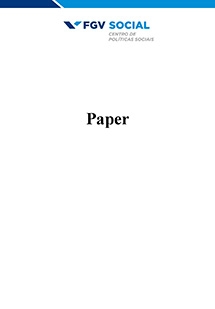
Brazil: The Pressure Points in Labor Legislation - Amadeo, Edward Joaquim, Gill, Indermit S., Neri, Marcelo Cortes
Sobre o paper:
Brazil’s experience shows that the economic and political history of a country is a critical determinant of which labor laws influence wages and employment, and which are not binding. Long periods of high inflation, illiteracy of the workforce, and biases in the design and enforcement of labor legislation bred by the country’s socioeconomic history are all important in determining the reach of labor laws. Defying conventional wisdom, these factors are shown to affect labor market outcomes even in the sector of employment regarded as unregulated. Following accepted practice in Brazil, we distinguish regulated from unregulated employment by determining whether or not the contract has been ratified by the Ministry of Labor, viz., groups of workers with and without signed work booklet. We then examine the degree of adherence to labor laws in the formal and informal sectors, and finds “pressure points” – viz., evidence of the law on minimum wage, work-hours, and payment timing being binding on outcomes – in both the formal and informal sectors of the Brazilian labor market. The findings of the paper imply that in terms of the design of legislation, informality in Brazil is mainly a fiscal, and not a legal phenomenon. But the manner in which these laws have been enforced is also critical determinant of informality in Brazil: poor record-keeping has strengthened the incentives to stay informal that are already built into the design of the main social security programs, and ambiguities in the design of labor legislation combined with slanted enforcement by labor courts have led to workers effectively being accorded the same labor rights whether or not they have ratified contracts. The incentives to stay informal are naturally higher for workers who are assured of protection under labor legislation regardless of the nature of their contract, which only alters their financial relationship with the government. The paper concludes that informality in Brazil will remain high as long as labor laws remain ambiguous and enforced with a clear pro-labor bias, and social security programs lack tight benefitcontribution linkages and strong enforcement mechanisms.




